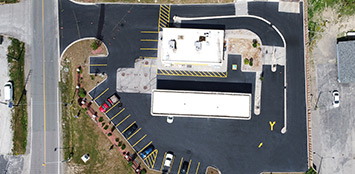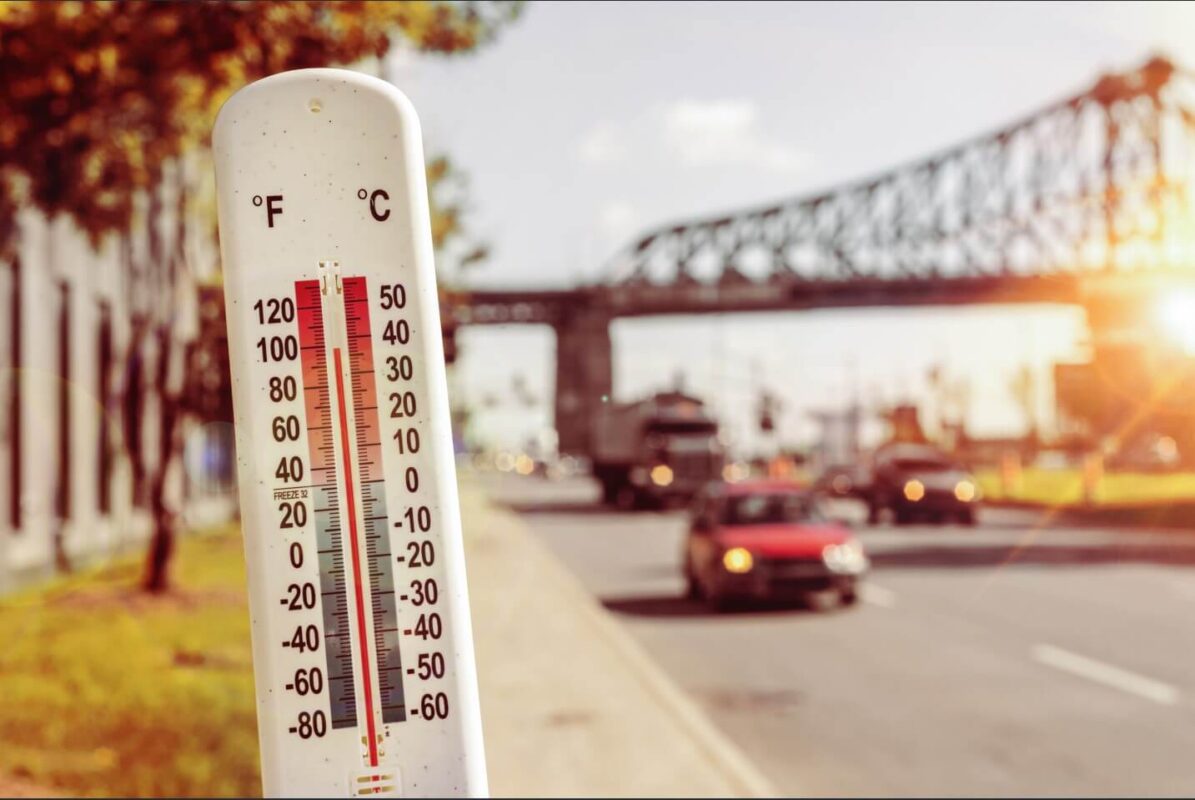Canada has never been a stranger to extreme weather shifts. Proudly, our winters are long, cold and brutal; and although short lived, our summers can be extremely hot, humid and sticky. Cold fronts and heat waves are very common from coast-to-coast in our great nation.With climate change and global warming beginning to aggressively affect the world’s climate, these extreme shifts in local and global weather are going to become more and more common. Canadians must prepare their asphalt pavement to brace for this harsher weather and learn to adapt and live with it as we move forward. Despite its exceptional strength, even the highest-grade asphalt will eventually erode away due to the elements. Extreme weather has the ability to crack, heave and destroy asphalt over time. To make sure you’re prepared for everything mother nature throws your way, here are 5 ways extreme weather can damage your asphalt:
1.Extreme Cold Can Damage Asphalt Pavement
Cold is an enemy to asphalt all on its own. When temperatures drop to their normal Canadian winter lows, asphalt tends to expand and contract with the earth, this breathing of the ground unavoidably moves the asphalt pavement, cracking it. Also, the faster the temperature drops, the more pressure will build under the asphalt, causing an even more rapid deterioration of the pavement. Once the winter ends, it is easy to notice potholes and other signs of damage all over any sort of asphalt pavement, commercial or residential. When Canadian temperatures are affecting your asphalt pavement, AHS is here with commercial or residential asphalt pothole repairs.
2. Frost Heave Breaks Asphalt
Frost Heave is a phenomenon unique to countries in the Northern Hemisphere- Canada being one of the biggest and coldest has multiple examples of this. If you ever noticed sidewalks, roads and walkways heaving and lifting over time, that is due to Frost Heave. Asphalt pavement, in order to be flexible in its application, is naturally porous, which causes cracks to form overtime. These cracks create the perfect opportunity for natural moisture and rain water to seep down underneath where the asphalt meets the ground. This water then puddles underneath the asphalt where it stays dormant until winter, and along with it, freezing starts. As the temperature begins to drop down to extremes the Earth’s natural heat can no longer keep the moisture from freezing, creating a large damaging block of ice that is effectively lifting the ground around it and the asphalt above it. Professional application of asphalt sealing can prevent this dangerous and costly problem from happening to your asphalt pavement.
3. Can Rain and Snow Damage Asphalt?
Moisture caused by precipitation is not a friend to asphalt and the heavier it falls, the worse the damage gets. The vast majority of professionally installed asphalt pavement is designed to quickly and effectively route the water away into some sort of drainage system, this is because the more water can sit for a longer duration of time, the worse the damage will become.
4. Direct Sunlight and UV Rays Can Damage Asphalt
The Canadian summer season brings with it intense heat and with that a lot of UV radiation. More UV light exposure means oxidation for your asphalt. If you have ever looked at asphalt pavement sitting in direct sunlight you will notice a layer of simmering oil on top of it. Over oxidation of the asphalt allows light oils to combine with heavy oils to penetrate the asphalt, which makes the asphalt more brittle and vulnerable to cracking and heaving in the future. Proper sealing and maintenance of the asphalt pavement is paramount to resisting the damage oxidation presents.
5. General Use Breaks Down Asphalt Pavement Over Time
Canadian’s love the few summer months they are allotted by nature each year. Road trips, cottages and thus traffic jams are a common theme of Canadian summers. With millions of people all trying to drive to the same beautiful places, combined with extreme heat and direct UV exposure, Canadian roads take an absolute beating in the summer months. Not only does commercial asphalt pavement take a beating during the summer but so do residential asphalt driveways. Storing heavy vehicles like boats, RVs and campers on asphalt driveways in the hottest months of the year is commonplace. These vehicles are mobile and weigh thousands of pounds, so naturally without the right asphalt driveway sealant the constant heavy weight will begin to slowly deteriorate the asphalt pavement underneath it.
Like asphalt pavement, extreme weather has become an ordinary part of our everyday Canadian lives. Maintaining and sealing asphalt pavement is the easiest way to prevent potholes, dangerous cracks and costly failure.
Contact Asphalt Sealing for any Questions you might have!
We hope this was helpful and informative! If you have any questions or need some guidance, feel free to give us a call and we would be happy to help you. Asphalt Sealing – 647-812-7845.



